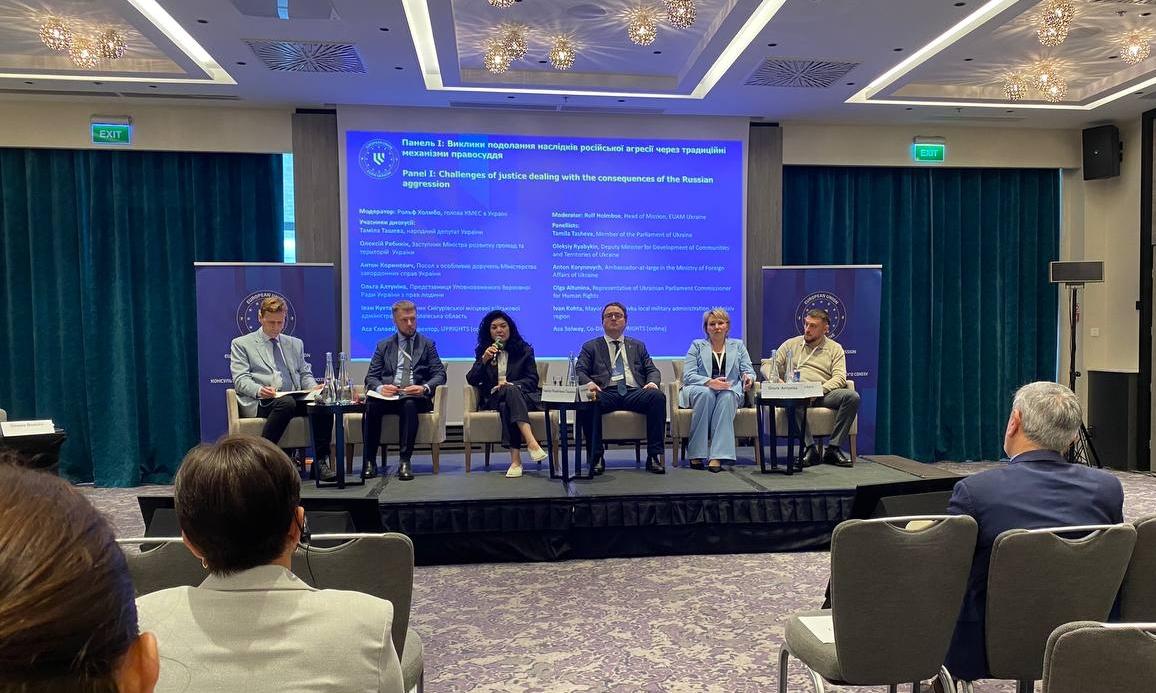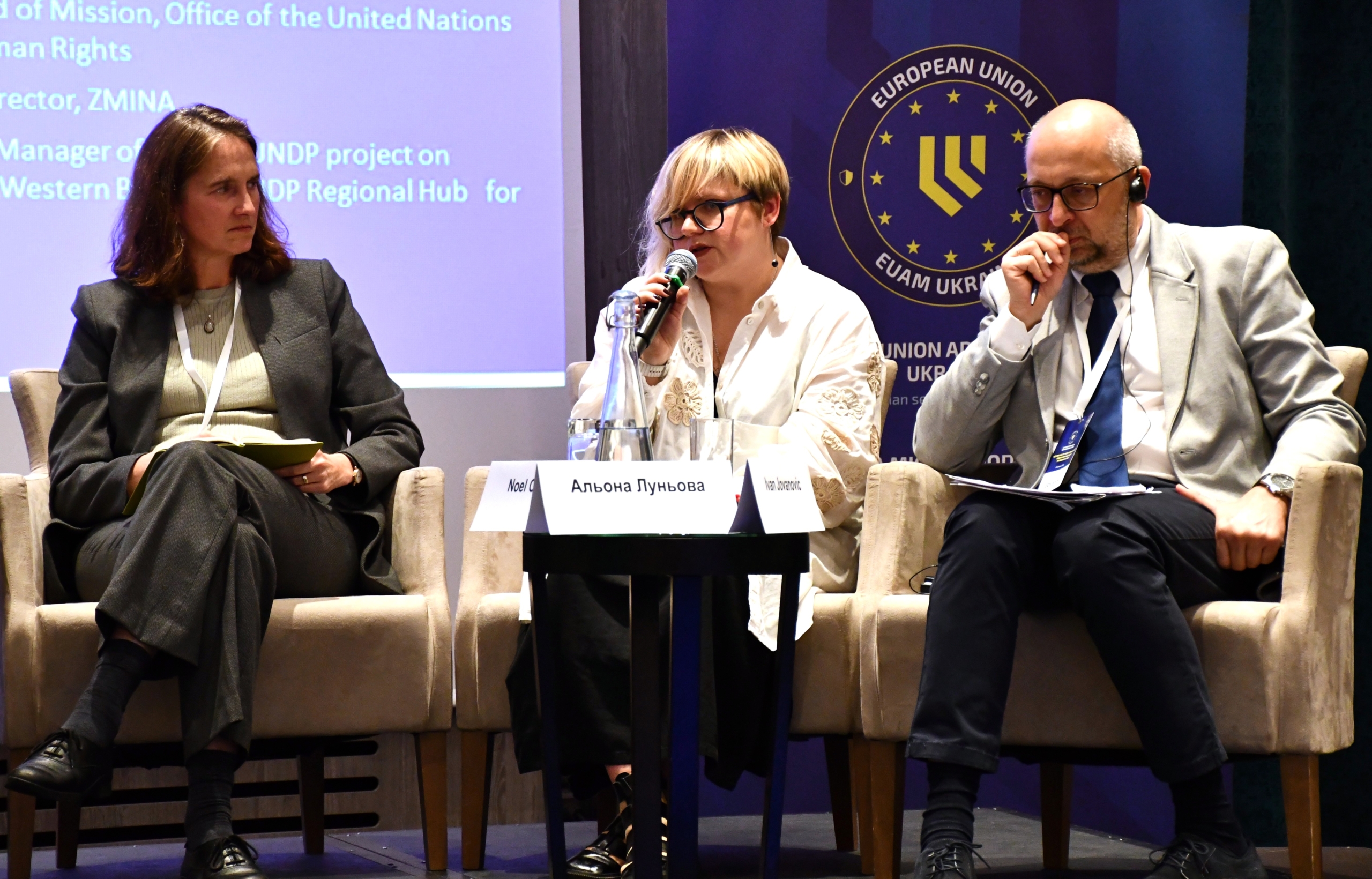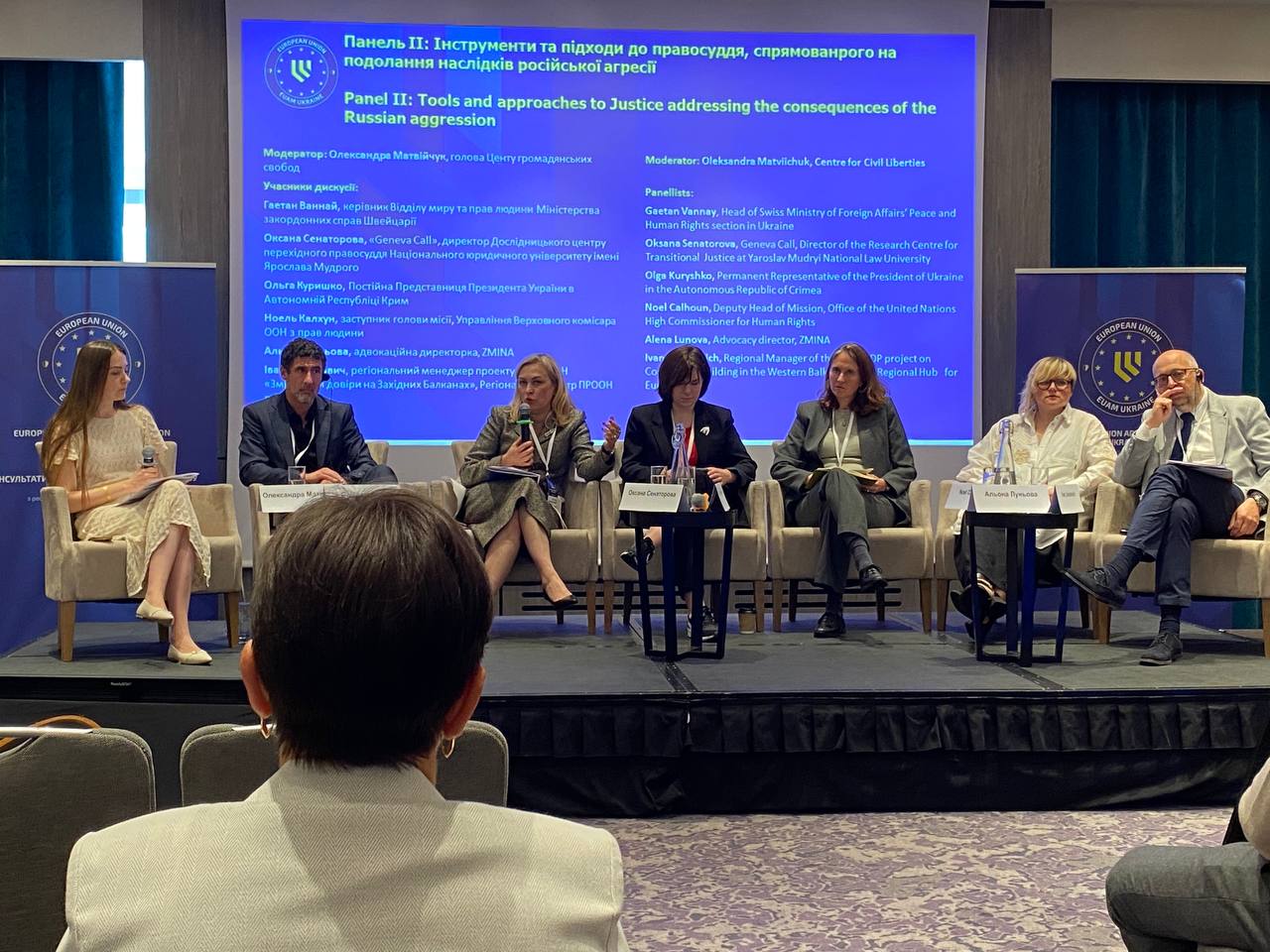ZMINA participated in the EUAM conference “Building Bridges Through Justice: Overcoming the Consequences of Russian Aggression”
On 26 May, an international conference organised by the European Union Advisory Mission (hereinafter – EUAM) titled “Building Bridges Through Justice: Overcoming the Consequences of Russian Aggression” took place in Kyiv. The event provided a platform for discussions between government officials, international and national experts on potential approaches to justice in response to the mass crimes committed during Russia’s armed aggression against Ukraine.

The conference included four thematic panels. Discussions focused on international crimes, collaboration, reintegration, judicial and extrajudicial mechanisms, reparations, and long-term processes of restoring trust and justice.
The first panel of the conference focused on the key challenges faced by the justice system in times of war. The second panel of the conference, titled “Tools and approaches to justice aimed at overcoming the consequences of Russian aggression”, was moderated by Oleksandra Matviichuk, Director of the Center for Civil Liberties, and featured a speech by Alena Lunova, Advocacy Director of the Human Rights Centre ZMINA. In her speech, she emphasised the absence of a single state body responsible for shaping the vision of transitional justice: “The lack of a vision leads to the fact that each authority acts within its competence as it sees fit. We do not have common values on which the state’s policy towards the temporarily occupied territories would be based. This creates chaotic and unsystematic approaches”.
She also noted that there is currently no structure within the government to coordinate transitional justice policy after the liquidation of the Ministry for Reintegration of Temporarily Occupied Territories.
This is a catastrophic situation. We need a body responsible for coordinating the authorities in the formation and implementation of transitional justice principles. “This is a framework within which there are many issues. For example, we have 13 draft laws on amending just one article of the Criminal Code on collaborationism, and we have made no progress. But what changes should be made and what do we want to achieve as a state?” added the Advocacy Director of the Human Rights Centre ZMINA.

Alena Lunova called for the establishment of a responsible body with a mandate to develop state policy on de-occupation, reintegration and transitional justice, with the mandatory involvement of civil society: “There must be a state body that is ready to take responsibility and shape the vision of Ukraine’s future with the de-occupied territories. And civil society organisations must be part of this process“.
Olha Kuryshko, Permanent Representative of the President of Ukraine in the Autonomous Republic of Crimea, also spoke during the panel, emphasising the need to launch state institutions in the de-occupied territories as soon as possible: “This is not only a question of efficiency, but also of trust. Without a functioning state, recovery will be impossible“.
Kuryshko also emphasised that only 10% of children born in Crimea have Ukrainian birth certificates, and that at least 16,000 civil servants are needed to fully restore state administration on the peninsula after de-occupation.
Representatives of international institutions emphasised the need for an inclusive, contextual, gender-sensitive approach to justice that complies with international law standards.

The third panel focused on accountability for international crimes, including collaborationism, and challenges related to the large number of cases, the burden on the justice system, and witness protection. The fourth panel discussed extrajudicial mechanisms – lustration, documentation, and memory preservation – as tools that should complement judicial processes and contribute to the healing of society. Participants spoke a lot about the Register of Damage, the need for a comprehensive state strategy in the field of transitional justice, and the fact that Ukraine should finally establish a unified policy in this area.
The conference was organised by the European Union Advisory Mission (EUAM) and aimed to outline a possible first vision for a national justice policy focused on the needs of victims of aggression, ensuring justice, healing society and reintegrating the de-occupied territories.
If you have found a spelling error, please, notify us by selecting that text and pressing Ctrl+Enter.















